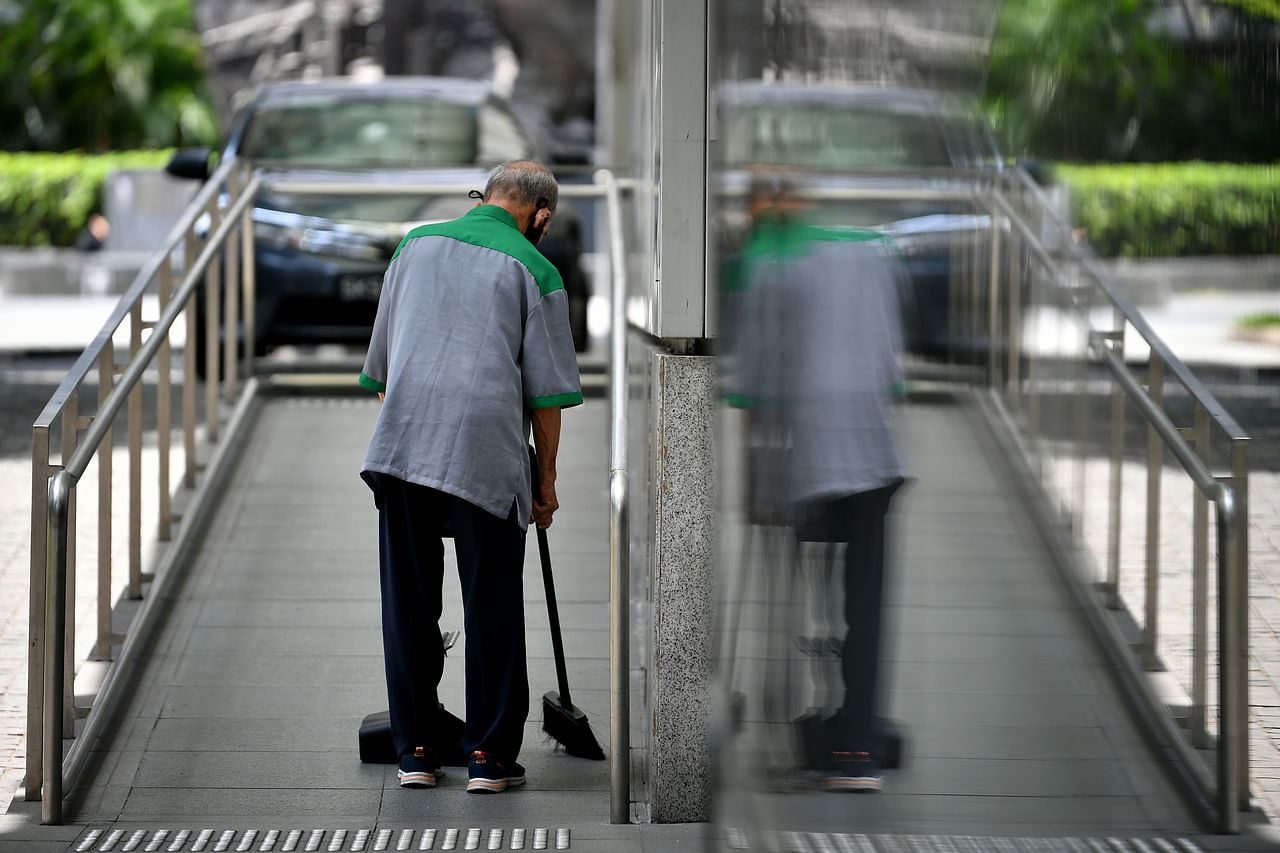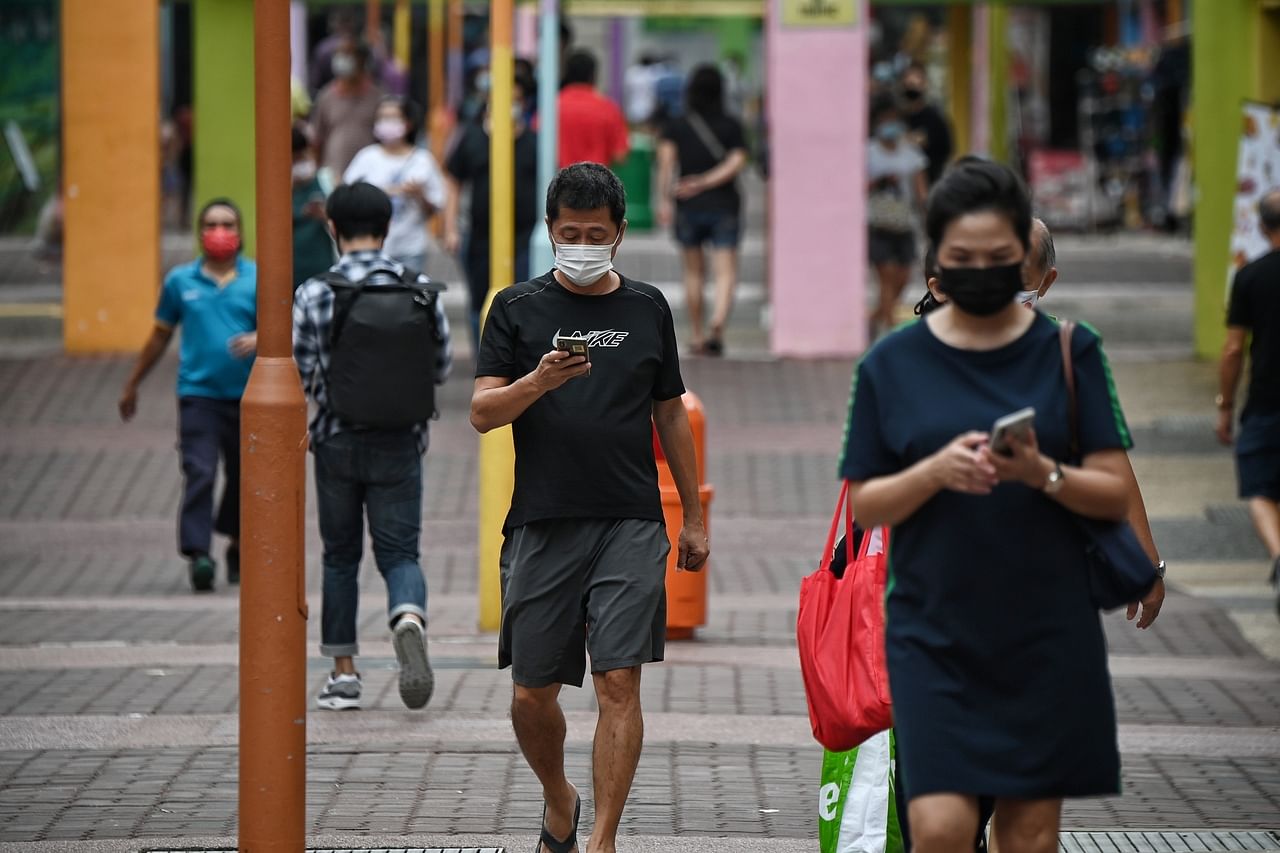SINGAPORE: The “reasonable starting point” for a living wage in Singapore is S$2,906 a month, according to a study by the Lee Kuan Yew School of Public Policy.
This figure is based on the average budget for a couple with two children, assuming both parents are employed full-time. The figure is also adjusted for taxes and all universal and major means-tested benefits.
“The median work income among all workers in 2020 exceeded this amount by 50 per cent, but the current PWM (Progressive Wage Model) wages fall significantly below,” said the school in a media release on Friday (Oct 8).
The Progressive Wage Model aims to lift the salaries of workers by various sectors through upgrading their skills and improving productivity.
The study found that the costs of education and care “dominated” the budgets for children’s needs.
“While some costs associated with children decline with age, others increase sharply. As current measures supporting education and care taper off for older children, parents are likely to face greater financial strain as their children grow up.”
Researchers also found that current public housing policies "effectively double” housing costs for single parents who have never married, compared to partnered, widowed or divorced parents.
The research team includes: The head of the Social Inclusion Project at the Lee Kuan Yew School of Public Policy Dr Ng Kok Hoe, and Nanyang Technological University Assoc Prof Teo You Yenn, author of This Is What Inequality Looks Like.
DETERMINING BUDGETS
The team built on a general definition of basic needs determined in their 2019 study, which investigated budgets necessary for older people living alone or with a partner.
Focus group participants then generated lists of items and services related to several fields, including housing and utilities, food, transport and social participation. They considered the needs of children according to gender and age group.
Researchers only included items and services if participants agreed that it was a basic need and could explain why. Participants also agreed on when and how family members could share items.
The team found that in 2021, a single parent with one child aged between two and six needed S$3,218 per month to meet their basic needs.
Meanwhile, partnered parents with two children, one aged between seven and 12 and the other aged between 13 and 18, needed S$6,426 a month.
A single elderly person needed S$1,421 a month.
According to the report, the budgets for the two working-age households work out to about S$1,600 per household member.
“As the average work income per household member for the third decile group of employed households in Singapore in 2020 is S$1,609, this indicates that 30 per cent of working households earn less than required for these two types of households to meet their basic needs.”
“These two waves of research give us a comprehensive view of basic needs across the life course,” said Dr Ng.
“They provide a concrete benchmark and starting point for discussing how people may achieve the incomes they need, including allowing us to calculate a possible living wage.”
“MAY NOT BE AN ACCURATE REFLECTION OF BASIC NEEDS”
In a statement issued on Friday, the Ministry of Finance (MOF) said: “Anyone reading the LKYSPP report should bear in mind the limitations of the approach used. The conclusions may not be an accurate reflection of basic needs largely due to assumptions used.”
The ministry noted that the methodology used is “highly dependent” on group dynamics and profile of the participants.
“With most participants having post-secondary education and 15 per cent living in private properties, the findings expressed may not be reflective of the circumstances of the lower-income families,” it said.
For instance, estimates included discretionary expenditure items such as private enrichment classes, jewellery, perfumes and overseas holidays, said MOF.
“The study also did not take into account alternatives, such as MOE (Ministry of Education) student care centres and the various self-help groups, which provide enrichment classes for those who need them at low cost.”
The ministry added that researchers considered mortgage payments for flats as expenditure items, but “downplayed” the fact that non-interest components of such payments are “more akin to savings that help households build up valuable housing equity”.
Highlighting the finding that each household member in working-age households should have about S$1,600 per month, MOF said that the number is “in fact closer to what an average household spends”. This is based on the Household Expenditure Survey 2017/2018, it said.
“This means that it is in excess of basic needs for an average household.”
MOF also said that the report understated the amount of Government subsidies and financial support received by low-income families.
“The amounts reflected in the report are what median earner receives, not low-income families,” said the ministry.
It added that the report offers additional data points on the expectations and aspirations of Singaporeans, “which will continue to evolve over time”.
“The Government is sensitive to these shifts and regularly reviews our scope and coverage of assistance to ensure it is relevant and adequate,” said MOF.
https://www.channelnewsasia.com/sin...nt-living-wage-singapore-lkyspp-study-2230071








